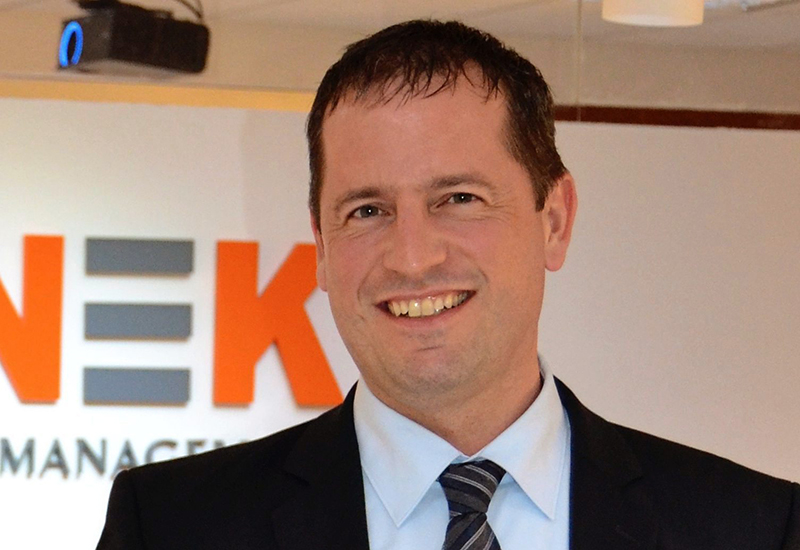With 25 million extra people expected to arrive in the country over a six-month period for Expo2020 it is no secret that Dubai is aiming to have more than 140,000 hotel rooms available for guests. Indeed, according to data from TopHotelProjects, this year alone, on average, the equivalent of one 260-key hotel will be delivered in the UAE every week.
Therefore, it will come as no surprise to learn that the UAE is already one of the most urbanised countries in the world and, as a result, gross energy consumption will grow rapidly, at around 5% to 2020. The pressure on energy and water supplies of the country’s hotels as well as residential buildings will be felt long before mid-century. But it wasn’t always like this.
Go back a century and for the desert tribes who inhabited the emirates long before the discovery of oil, survival was dependent on the ability to be self-sufficient. Living off the land’s scarce provision of water and food, the Bedouins developed a culture at one with nature. Sustainability was more than just a way of life, it was a necessity.
With the discovery of oil, life changed. Suddenly food was plentiful, cool air was available at the flick of a switch and the shaded dwellings with their wind tunnels and courtyards were subsequently replaced with modern chilled houses and high-rise buildings, shimmering in the desert sun.

| Advertisement |
Wealth-fuelled technology was not the only revolution — as modern Emiratis carved a new way of life, they also created a new set of social and cultural values, far removed from those of previous generations. Large swathes of the country were urbanised, the population grew rapidly and gradually many had forgotten how to depend on nature to survive.
The values of traditional Emirati hospitality inspired a booming hotel and restaurant industry, its growth dependent on importing — and serving — vast quantities of food. In pursuit of the globally-accepted luxury experience, resources were used as though limitless.
The problem wasn’t localised. Around the world, consumerism was encouraged to drive retail, F&B and even the travel industry. Living for the present, 20th century life was about convenience and the party continued for decades.
Acutely aware of the unfolding situation, over the last decade the UAE’s leaders have worked tirelessly to secure sustainable infrastructure capable of meeting these rising needs. The dependence on volatile oil and gas markets is over, the ‘knowledge economy’ is growing and once again, sustainability is becoming a way of life, supported by clean energy and the ability to reduce, re-use and recycle.
The change isn’t just about the country’s energy and water security, or the future health of those who live here. Rather, it’s about setting an example to the world and leading global efforts to reduce the impact of climate change.
In the first of several public declarations, in 2005, the UAE became one of the first major oil-producing nations to ratify the Kyoto protocol, and in 2015 affirmed plans to generate 25% of all electricity from clean sources by 2021, later increasing that target to 27%.
In Dubai, a series of projects will see the emirate become the most sustainable city in the world by 2020 and the planned Expo of that year will be the most sustainable in the event’s history.
Across the country, work has begun on record-breaking solar parks, nuclear power programmes, and the largest waste-to-energy facility in the Middle East, in Sharjah. The (not too distant) future will bring solar powered homes, electric cars and ‘smart’ infrastructure and buildings.
However, leadership requires wide support and, as millennials continue to place grassroots pressure on unethical and unsustainable practices in the corporate world, a growing number of voices are joining their cause.
Inspired, today we see Gen Xers and baby-boomers realising their dreams to launch sustainable packaging companies or use recycled plastic to manufacture fabrics. We have hotels taking real pride in the empowerment of guests to preserve the environment and, behind the scenes, engineers calibrate the hotel’s systems for optimum efficiency.
An entirely new tourism sector has emerged and now those who value the history and heritage of the region can embark on eco-tours of the ancient caravan routes in Al Ain and Fujairah.
The UAE’s work isn’t a transition to sustainable living, but a return to the values that first supported human life in the harsh desert climate. While the social make-up may have changed and the economic picture is quite different from that of 100 years ago, modern life disturbed the delicate ecological balance we depend upon and through sustainability, we are now trying to restore that balance.
About the Author: Markus Oberlin is the CEO of Farnek. Contact info@farnek.com.









 Search our database of more than 2,700 industry companies
Search our database of more than 2,700 industry companies









